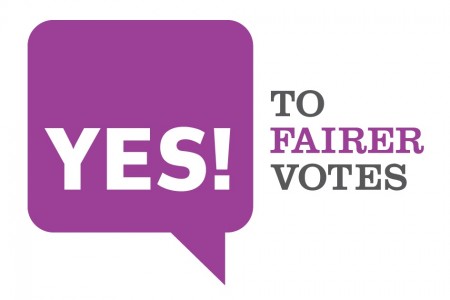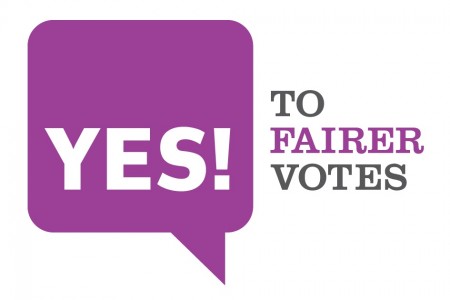Vote with your heart and your head – the best case I can make for AV

 The way Yes To Fairer Votes makes the case for AV didn’t strike me as correct when I first read their website. I am all in favour of simple, compelling arguments, but when over-simplification results in statements that are only tangentially linked to the matter at hand something is not right. Focus groups to hone a message, OK, but some thinking and honesty too please.
The way Yes To Fairer Votes makes the case for AV didn’t strike me as correct when I first read their website. I am all in favour of simple, compelling arguments, but when over-simplification results in statements that are only tangentially linked to the matter at hand something is not right. Focus groups to hone a message, OK, but some thinking and honesty too please.
So what then is the best argument for the Alternative Vote?
Something like “Vote with your heart and your head” is about the best I can do.
Let me explain a little. With First Past the Post you always just vote with your head. If you’re a Green and your seat is a Tory-Labour fight, of course you’re going to vote Labour. If you back UKIP and your seat is a Tory-Labour fight, then chances are you’re going to vote Tory. More often than not with FPTP you know a vote essentially won’t count if you vote for a small party.
With AV it’s different. With your first preference you can vote for what your heart thinks is right – Green, UKIP, Liberal Democrat (hmm, Lib Dem and right, maybe not, but you get the idea) – safe in the knowledge that if this candidate does not win your vote will be redistributed to your second choice. It’s the antidote to Polly Toynbee’s peg on the nose when voting for Labour under FPTP.
Please note that I say all of this as a democrat first, and a Labour party member and voter second. Our democracy and election systems are more important than party politics alone, so you will not find me advocating AV because it’s the best way to keep the Tories out in the future.
There are indeed downsides to AV – it might actually make things less proportional and indeed the chances the result is more proportional is slim to none. But the system we have at the moment is really broken, and some change – even this incremental step – must be welcomed and is worth fighting for.
Essentially, I agree, but it excludes some people. I live in a tight 3-way marginal, went from Labour to Tory this time. Despite this, UKIP got a chunk of votes, as did the Greens. Sure, the Green vote halved despite their local vote going up, but they were still there.
There have always been expressive voters, and always will be, and while most, I think, do put tactical considerations first, not all do. Your argument works on those who vote tactically/rationally, but not in any way on those who vote expressively (although it’ll help with activists, who’ll be used to seeing their supporters dumping them for a tactical vote).
We need an argument that also works, or can also be used, on those who always vote for their first preference party regardless. To do that, we partially need to get into the mindset of such a person, someone I certainly am not.